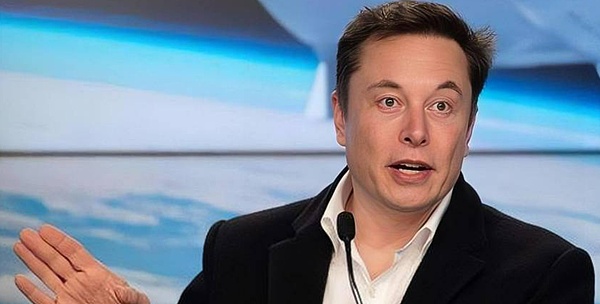The global financial and crypto sectors have been particularly active recently: traditional exchange giants are promoting the implementation of tokenized securities, the crypto industry is rushing to file for compliance-compliant products, even the rich list is experiencing hourly reversals, and Trump's wealth has soared thanks to crypto assets. These seemingly sporadic events actually outline new shifts in the landscape of digital finance and traditional wealth, and each development warrants attention.

1. Crypto Industry: Compliance Accelerates, Product Launch Takes Further Steps
The crypto industry is transitioning from "wild growth" to "deepening compliance." Exchanges, stablecoin issuers, and asset management institutions are all closely following the regulatory pace to launch new products, attempting to bridge the gap between "traditional finance and digital assets."
Nasdaq's move has attracted the most attention—it has submitted a proposal to the SEC to amend its rules to allow the trading of "tokenized securities" on the exchange. This means that traditional securities like stocks and ETFs may be traded on the Nasdaq in tokenized form in the future. If approved, this will mark the first time that blockchain technology has been adopted by core US financial markets, paving the way for more assets to be brought online. For investors, this will not only lower the barrier to entry for trading traditional securities but also increase liquidity, a key step in the implementation of digital finance. The stablecoin sector has also welcomed a new compliant player. Tether announced the launch of its compliant stablecoin, USAT, in the US. It strictly complies with the GENIUS Act and is issued by federally regulated Anchorage Digital, with reserves managed by Cantor Fitzgerald. It also specifically hired Bo Hines, former Executive Director of the White House Crypto Commission, to lead the stablecoin. Tether's USDT has previously been controversial due to its reserve transparency. USAT's focus on "institutional-level compliance" is a clear attempt to capture the US compliant stablecoin market and reinforces the view that compliance is essential for the mainstream adoption of stablecoins. Asset management institutions continue to focus on crypto trusts and ETFs. Grayscale recently submitted registration statements for BCH and LTC trusts to the SEC and also applied for the HBAR Trust ETF. Having previously successfully converted its Bitcoin Trust (GBTC) to an ETF, the intensive filings for other cryptocurrencies clearly indicate an effort to expand its crypto asset management portfolio. Meanwhile, the Dogecoin ETF market has also seen a divergence: Bitwise's Dogecoin ETF has faced a delay in SEC approval, while the DOJE ETF, a collaboration between REX and Osprey, is scheduled to launch on September 12th, circumventing regulatory restrictions through holdings in a Cayman Islands subsidiary. Bloomberg analysts have bluntly stated that the DOJE may be the first US ETF to hold "assetless assets," reflecting the SEC's differentiated approach to different compliance paths. Separately, news broke about the IPO of crypto exchange Gemini, which raised $425 million at $28 per share, exceeding its originally planned price range and demonstrating the market's recognition of compliant crypto platforms. The Winklevoss twins, founders of Gemini, had previously predicted that "Bitcoin would reach $1 million within ten years." The IPO, coupled with their bullish price, clearly aims to leverage this momentum to boost market confidence. 
Second Circle of Wealth: Musk "lost and regained" the top spot, while Trump made $3 billion from crypto.
Recently, the rich list has seen two dramatic developments: one is the "hourly richest man battle" between Musk and Ellison, and the other is Trump's "wealth comeback." Both are closely related to "emerging industries." Musk's title as the richest man nearly slipped through the cracks. On September 10th, Oracle released stronger-than-expected earnings thanks to a surge in its AI business, sending its stock price soaring as much as 43% in a single day. Founder Larry Ellison's wealth surged by $101 billion in a single day, briefly surpassing Musk at $383.2 billion. However, as the US stock market closed, Oracle's stock price retreated, and Ellison's wealth shrank to $383 billion. Musk narrowly regained the top spot with a net worth of $384.2 billion. This is the third time Musk has regained the top spot after a brief loss in 2021. The key difference lies in Ellison's short-term AI success, while Musk relies on the long-term development of Tesla and SpaceX. This competition between the two also reflects the wealth tensions between the two sectors of AI and new energy. Even more noteworthy is Trump's growing wealth. According to Fortune, Trump's net worth soared from $4.3 billion to $7.3 billion over the past year, earning him $3 billion and jumping 118 spots on the Forbes 400 list. His secret to wealth is cryptocurrency—no president in American history has ever leveraged his power and position to acquire such a vast fortune in the crypto space. This not only reflects the fact that crypto assets have become a valuable asset for the wealthy, but also raises the question of the intertwined power and capital. The crypto market remains subject to regulatory risks, and whether Trump's wealth growth is legally sound is likely to spark further debate. Separately, the prediction market platform Polymarket has also seen its valuation skyrocket. Sources familiar with the matter claim its new funding round values it at at least $3 billion, with some investors even pegging it at $10 billion. Polymarket, which previously withdrew from the US market due to compliance issues, has seen its valuation surge, likely due to its clearing regulatory hurdles by acquiring a compliant exchange. This also confirms the logic that compliance can significantly boost company valuations.
Third, Policy: The Supreme Court Accelerates Trump Tariff Case, and Regulatory Approach Influences Market Expectations
In addition to market dynamics, potential policy changes are also worth vigilance. The US Supreme Court recently announced that it will expedite the hearing of Trump's tariff case in early November. A lower court previously ruled that Trump's global tariffs were "ultra-authority and invalid." If the Supreme Court overturns this ruling, Trump, if he returns to the White House, could reinstate tariff policies, which would directly impact the global trade landscape and, in turn, affect markets like the stock market and commodities.
For crypto investors, policy uncertainty is always a risk. Currently, the SEC still has "differentiated standards" for approving crypto products. For example, the same Dogecoin ETF may have different approval results under different paths. But overall, the new SEC Chairman Atkins has a more friendly attitude towards digital assets. Nearly 100 spot crypto ETFs are still waiting in line for approval. If more products are approved in the future, it may inject more liquidity into the crypto market.

Conclusion: The financial and wealth landscape is being reshaped by "new variables"
A series of recent events have shown that the global financial and wealth landscape is being reshaped by new variables such as "digital assets" and "AI": the encryption industry is gradually integrating into the traditional financial system through compliance, the ranking changes on the rich list are deeply bound to emerging industries, and the policy side is looking for a balance between "innovation and regulation."
For ordinary investors, two major trends are crucial: First, compliance is a prerequisite for crypto investment. Whether choosing stablecoins, ETFs, or trusts, regulatory qualifications must be prioritized. Second, while emerging industries offer significant wealth opportunities, they also carry higher risks. For example, the battle between Musk and Ellison for the richest man reminds us that short-term performance surges can lead to wealth fluctuations, and long-term planning is key. In the future, as digital finance further takes hold, the wealth landscape may see even more changes. Only by keeping up with trends and making rational judgments can we seize opportunities amidst this change.
Disclaimer: The content of this article is for reference only and does not constitute investment advice. Investors should approach cryptocurrency investments rationally based on their own risk tolerance and investment objectives, and avoid blindly following trends.
 Joy
Joy








